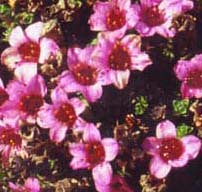When field trips are so much more than what's outlined on the itinerary

I’m back from a great excursion to some of the world-class outcrops that lie on my doorstep here at University above the Arctic Circle. For the past week students from all over Europe have been studying the basin fills from the Carboniferous, Cretaceous and Tertiary. Each morning we would climb some hundred meters above sea level to get to the open air class room where we have discussed sedimentary processes and sequence stratigraphy, practicing field work techniques and geological arguments, all while enjoying some spectacular sunny weather and stunning views.
Something special always happens on these trips. People loosen up and get to know each other and conversations drift from the professional to the personal and back without people even noticing. I like the way the barriers between teachers and students are broken down when in the field. In fact the free and easy atmosphere was part of what attracted me to geology in the first place. I like to get to know my students as more than rows of faces in a class room and to hear their ideas and plans and thoughts. I also like that I get to show a more personal side of the scientist. That the professors are people too, and that we also have families and pets and hobbies and interests and thoughts about things outside the geology classroom. I like the opportunities to discuss career options and education choices and to share the experiences I wished someone had shared with me when I was younger and at a lower level in the ivory tower hierarchy.
I want to show the students that it’s not about being tough, but about doing a good job. That it’s about learning the necessary techniques and bringing the right equipment. I want to show them that the skills needed to do a good job can be learned and that lack of experience does not mean that one will not be able to make it. The process of becoming a field geologist is not only about learning the science, but also about learning to navigate the outdoors. Some students come equipped with mountaineering skills and top notch equipment, but many come with only the most rudimentary knowledge of how to use a compass or how to move in a mountain side. I want to do field courses in a way where it is accepted to be less experienced and where being hungry or tired are legitimate reasons for a break.
The field part of geology is perhaps the area where we are closest to an apprenticeship system. This is where the trade is learned, where connections are made and where ideas about what symbols to use for what structure are etched into brains. It is where skills are mastered and where the way future geologists will go about doing their observations is shaped. It is a place where the tone is set for an open dialogue between teachers and students and where we get a chance to influence or inspire each other. Of course it is also a chance to go to some spectacular places that most people never get to see, enjoy some wet sandwiches after a long day in the rain or just the relief of reaching the destination after a long hike or hitting the shower at the end of the day.
I think that one of the coolest things about moving here is that much of my teaching will be based on field activities.






3 Comments:
Is that second photo from the top Storvola?
Bonus points to you Brian. Yes, you're right.
I thought you might recognise it, since I guess the sediments there are related to your work. Have you been there?
I have never been, but would LOVE to go someday. I've read many papers about the prograding Eocene shelf-slop systems, which are somewhat analogous to the Magallanes Basin strata.
Your comments about students new to the field are right on. I have been in the field with several students that had quite a bit of mountaineering and backpacking experience, but when it came to the mental focus of field work (logging section), they didn't quite like it like they thought they would.
And the opposite too ... students who could log core all day in a comfortable office but when it came time to do it outside in the elements, they lost focus.
Maintaining that focus AND dealing w/ the elements is tougher than people think.
Post a Comment
<< Home